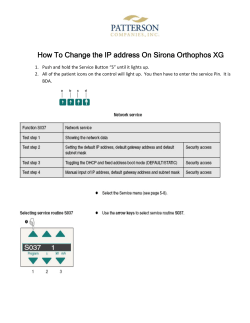
print instructions - Arledge Music Wire Home Page
SINGLE STRING PREP: Page 1 of 2 PREP INSTRUCTIONS for Arledge Optimized Piano Strings A companion video can be viewed from www.pianostrings.com/prepsingle Watch this video while reviewing these instructions: General Notes: If the integrity and fit of the existing tuning pin and pin block is good, the tuning pin can be reused. If a wooden tuning pin bushing or plate bushing is used check that it is seated and flush with the plate surface. No additional prep is necessary before going to the next step. However, If the tuning pin is loose, this is a good time to correct it. A new tuning pin of the same length but slightly larger diameter can be used to tighten the fit provided the integrity of the pin block is good. If this is the case, remove the old pin by carefully turning it counterclockwise and straight out of the hole with a star tuning tip chucked in a high speed electric drill. Otherwise remove the old pin by hand by turning it with tuning hammer very slowly to avoid heat buildup. Keep the rotation perpendicular to avoid damaging the top of the pin block hole. On piano designs utilizing a wooden tuning pin bushing or plate bushing, replace the bushing if needed. Otherwise check that the old bushing is seated firmly. The top of the bushing should be flush with the top of the plate in most cases. ARLEDGE MUSIC WIRE/2612 Winford Ave/ Nashville TN 37211/615-255-7818/www.pianostrings.com SINGLE STRING PREP: Page 2 of 2 SINGLE STRING PREP PROCESS With the old tuning pin removed loosely insert the new pin into the top of the pin block hole and align it with the hole at a slight back angle of 3-7 degrees. Rotate the tuning pin until the becket hole aligns with the upper termination point. And then gently tap it into the pin block hole with a claw hammer. Tap it in only enough to stabilize it in the top of the pin block hole at the same angle as the hole. A pin block support jack can be used for additional support between the keybed and the bottom of the pin block in grands. When the tuning pin is self supporting and in alignment with the pin block hole, check that the tuning pin becket hole is aligned with the upper termination point. Use a tuning pin punch with the hammer to drive the tuning pin further into the pin block until the top of the tuning pin is 1 and 1/8th inch” above the plate. If the tuning pin is a little high it can be tapped in later if needed. If it is a little low it should be turned out to a minimum of 1 and 1/8th inch with the becket hole aligned to its respective upper termination point. The piano is now prepared and ready to accept the new string. Go to the next step at www.pianostrings.com/installsingle ARLEDGE MUSIC WIRE/2612 Winford Ave/ Nashville TN 37211/615-255-7818/www.pianostrings.com
© Copyright 2025








